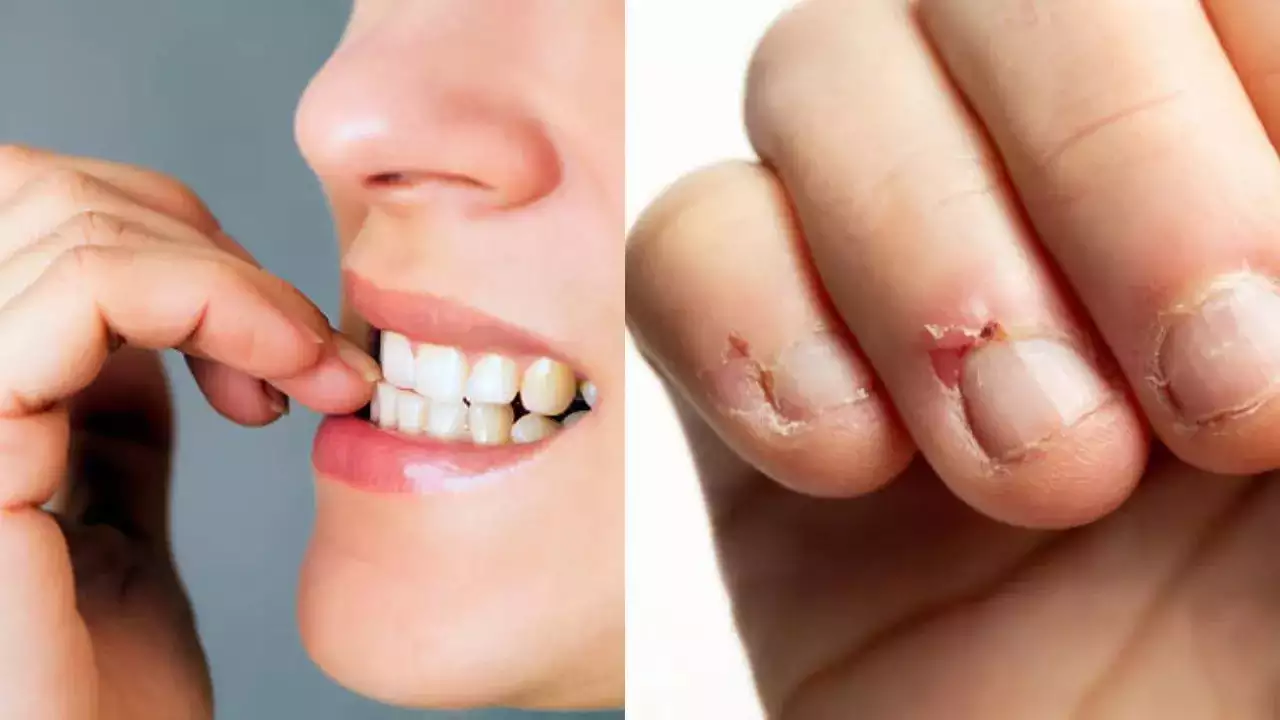
Chronic nail damages your nails and surrounding skin, leading to infections
More than 30 per cent of people across the world bite their nails as a habit. Also known as onychophagia, many studies have called this a sign of emotional imbalance, distressing your mental health. However, according to doctors, chronic nail biting also damages your nails and surrounding skin, leading to infections, which can even be life-threatening.
After raising your hand to the face or mouth and holding it there for a few seconds, when you tap your fingers quickly against the front teeth, spasmodic biting can lead to many gross issues. A few of these are:
Skin infections
Biting your nails can expose the delicate skin beneath it, leaving it exposed to any bacteria or pathogens in your mouth, causing an infection. One of the most common forms of infection is known as paronychia, which leads to swelling, redness, pain, and pus-filled lumps.
According to doctors, these infections not only stick around for weeks at a time but can even worsen depending on the weather and the way you deal with hygiene.
Inflammation
While your saliva can break down fats and other food molecules, aiding digestion, it also damages and inflames the skin of your fingertips if you constantly put them in your mouth. According to doctors, saliva corrodes the skin around the nails, causing inflammation and pain.
Ingrowth
There is a generative layer within your nails known as the matrix, which covers the outer layer. And so, if you constantly bite your nails, which causes infections, the matrix gets damaged over time, leading to ingrown nails and various kinds of deformities.
Herpes
Also known as herpetic whitlow, the condition gets aggravated if you have oral herpes. Statistics say more than 40 per cent of adults across the world have it by mostly infecting the fingers with the virus.
Herpes is a viral infection that causes painful blisters or ulcers on the skin, caused by the herpes simplex virus, which is very common and contagious. It causes a high fever, but usually the first symptoms are painful burning and tingling in your infected fingertips. After a week or two, you could also develop liquid- or blood-filled sores.
Tooth issues
Recurrent nail biting also causes the deformation in the roots of your teeth, leading them to become crooked. Nail-biting causes fractures in the teeth you use to do the nibbling and can trigger gingivitis, a gum disease.
Ways to stop biting your nails
While it can be difficult to change your habits, with the right plan you can stop biting your nails for good.
Identify your triggers
According to experts, it is important to pay attention to the times you are most likely to bite your nails. The three most common triggers are situations like being anxious or stressed, bored or understimulated, and mentally engrossed in a task. And so, once you know what is triggering you, look for a replacement behaviour like squeezing a stress ball.
Keep your nails trimmed or painted
These are viable solutions that can lower the instances you would be biting your nails. You can also wear gloves or retainer-style devices.
Get professional treatment
If you are not able to break a nail-biting habit on your own, seek help from a psychologist for cognitive behavioural therapy, or CBT and acceptance and commitment therapy, or ACT.
Get Latest News Live on Times Now along with Breaking News and Top Headlines from Health and around the world.
